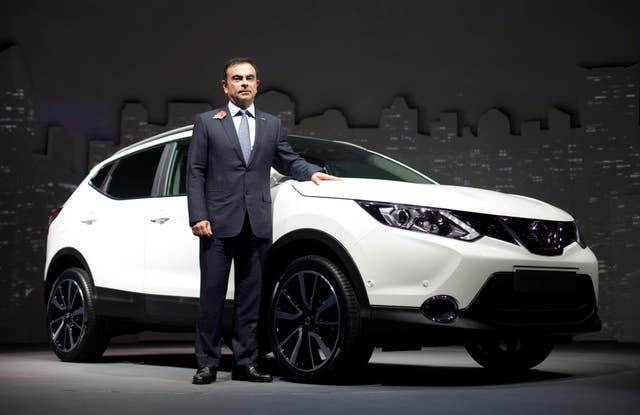Former Nissan chairman Carlos Ghosn has appeared in a Japanese court to assert his innocence while demanding the reason for his prolonged detention.
Prosecutors in Tokyo charged Ghosn with falsifying financial reports in under-reporting his income.
Revered in the global auto industry for saving the Japanese automaker from near bankruptcy, Ghosn was to get his first chance to directly tell his side of the story at the courtroom hearing.
Appearing in a dark suit without a tie and wearing plastic slippers, the former chief looked thinner than he had before his arrest.
Ghosn entered the courtroom handcuffed with a rope around his waist. Two guards who led him in then uncuffed him and sat with him on a bench.

Presiding judge Yuichi Tada read out the charges and said Ghosn was being detained because he was considered a flight risk and there was the risk he may hide evidence.
“Your honour, I am innocent of the accusations against me,” Ghosn said.
“I am wrongfully accused,” he added, reading from a prepared statement.
Prosecutors have charged Ghosn with falsifying financial reports in under-reporting his income.
Ghosn said the company’s and his own finances were harmed by the global financial crisis a decade ago.
He said he had an option to retire and use his retirement fund to restore his personal finances, harmed by volatile foreign currency exchange moves at the time.
But he decided to stay and restore Nissan, he said.

He has been charged with falsifying financial reports in under-reporting his pay by about 5 billion yen (£34m) over five years through 2015.
Reports have cited family members as saying Ghosn maintains his innocence, asserting the money, promised as income for later, was never decided on or paid.
According to a statement released before the hearing to some media, Ghosn said he had “acted honourably, legally and with the knowledge and approval of the appropriate executives inside the company with the sole purpose of supporting and strengthening Nissan”.
In the statement, Ghosn said the investment losses he was being accused of stemmed from his having to be paid in yen and he had asked Nissan to temporarily take on the collateral for foreign exchange contracts, and the company suffered no losses.
Nissan Chief Executive Hiroto Saikawa has publicly denounced Ghosn, accusing him of using company money and assets for personal gain, as well as under-reporting compensation.
Ghosn was sent in by Renault SA of France in 1999 and led a spectacular turnaround at Nissan Motor Co for two decades, during which he mostly served as chief executive.
Renault owns 43% of Nissan, while Nissan owns 15% of Renault. The alliance, which in recent years has added smaller Japanese automaker Mitsubishi Motors Corp, has risen to be one of the most successful in the industry, rivalling Volkswagen AG of Germany and Japan’s Toyota Motor Corp.
Ghosn remains the head of Renault.
His courtroom appearance drew worldwide attention, with throngs of cameras set up outside the Tokyo Detention Centre on Tuesday to capture his departure.
The Tokyo District Court said 1,122 people lined up to draw lots for the 14 courtroom seats allotted to the public.
No cameras or audio recordings are allowed to document Japanese court sessions.

Ghosn’s detention has also drawn attention to what critics deem “hostage justice” in Japan, where suspects are interrogated without a lawyer present.
Some people have signed confessions to crimes they never committed to try to get out of the ordeal.
Suspects are routinely held without bail, often due to fears about tampered evidence.
Ghosn’s downfall was sudden, coming in a surprise arrest as his private jet landed in Tokyo on November 19.
Greg Kelly, another Nissan executive and board member, was also arrested and charged with collaborating with Ghosn on the under-reported income.
Kelly, who was released on bail on December 25, has said that he is innocent.
Tokyo prosecutors have repeatedly prolonged Ghosn’s detention, adding on new allegations, with the latest being suspicion of breach of trust stemming from allegations that he had Nissan temporarily shoulder his personal investment losses.
Formal charges on those allegations have not been filed, nor have trial dates have been set for Ghosn or Kelly.
Ghosn’s detention now runs until January 11.
